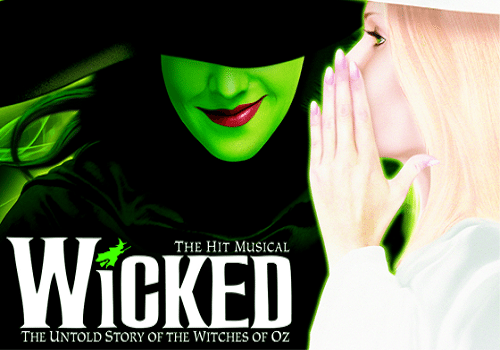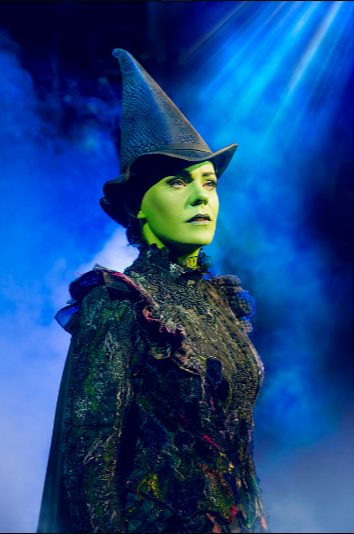Spoiler Warning: This post contains spoilers about the musical Wicked.

A few weeks ago, I went to see Wicked: The Untold Story of the Witches of Oz at the Apollo Victoria theatre in London. Based on the 1995 novel Wicked: The Life and Times of the Wicked Witch of the West by Gregory Maguire, the musical retells the story of The Wizard of Oz, focusing on Elphaba, otherwise known as the Wicked Witch of the West. Wicked turns the well-known narrative on it’s head, portraying Elphaba as a misunderstood rebel instead of an evil villain. As well as being a brilliant musical, the play is an ideal example of the idea that one man’s terrorist is another man’s freedom fighter, and demonstrates the importance of representation and perspective when it comes to dissent.

Wicked begins long before Dorothy and Toto arrive in Oz. Elphaba is an isolated young woman, hated by her father and shunned by her classmates because she was born with green skin and strange magical abilities. At university, she becomes concerned with the plight of animals, who are being demonised and suppressed in Oz to the extent that they are losing their ability to talk. The final straw comes when Elphaba’s history teacher, Doctor Dillamond, is fired because he’s a goat, and she uses her magic to rescue a caged lion cub.
Elphaba travels to the Emerald City to meet the Wonderful Wizard of Oz in the hope that he will stop the ill-treatment of animals when he learns of their fate. She is distraught when she realises that the Wizard is in fact responsible for the anti-animal feeling, scapegoating them in order to unite the majority of ‘Ozians’. Refusing to participate in this Machiavellian form of government, Elphaba runs away and becomes what we might call an animal rights activist. Determined to prevent her speaking out, the Wizard vilifies Elphaba, transforming her in the public eye into the Wicked Witch of the West. She is only able to escape the persecution by faking her death at the hands of Dorothy, and leaving Oz forever.
Towards the end of Act 2, Elphaba confronts the Wizard, demanding to know how he can be comfortable lying to the people of Oz. He responds with the song ‘Wonderful’, which contains a brilliant explanation of the importance of perspective when it comes to how actions are perceived:
{spoken}: Elphaba, where I come from, we believe all sorts of things that aren’t true. We call it history.
{Sung}:
A man’s called a traitor
or liberator. A rich man’s a thief
or philanthropist. Is one a crusader
or ruthless invader? It’s all in which label
is able to persist.
There are precious few at ease
with moral ambiguities, so we act as though they don’t exist.
Scapegoating a minority group by blaming them for all of society’s ills is a tactic which unfortunately feels very familiar at the moment. Elphaba’s treatment for refusing to go along with it also has contemporary parallels; Attorney General Sally Yates being branded a ‘traitor’ by Donald Trump for speaking out against his Muslim Ban springs to mind. Others have praised Yates for speaking out- the way her actions are perceived is a matter of perspective. Another real-life example is Guy Fawkes, who’s position as terrorist/freedom fighter I have written about before.

Elphaba is a fictional character, but fiction can make us think about real life in ways that we haven’t before. Wicked is a hugely popular musical; it has been seen by millions of people around the world, and even those who haven’t seen it have heard it’s soundtrack (‘Defying Gravity’ used to be as popular as Frozen’s ‘Let it Go’). This popularity makes it influential. Wicked contains messages of friendship, acceptance, and tolerance, urging audiences to stand up for what they believe in, and not to blindly accept what they are told by those in power-lessons that are just as important now as they ever were.